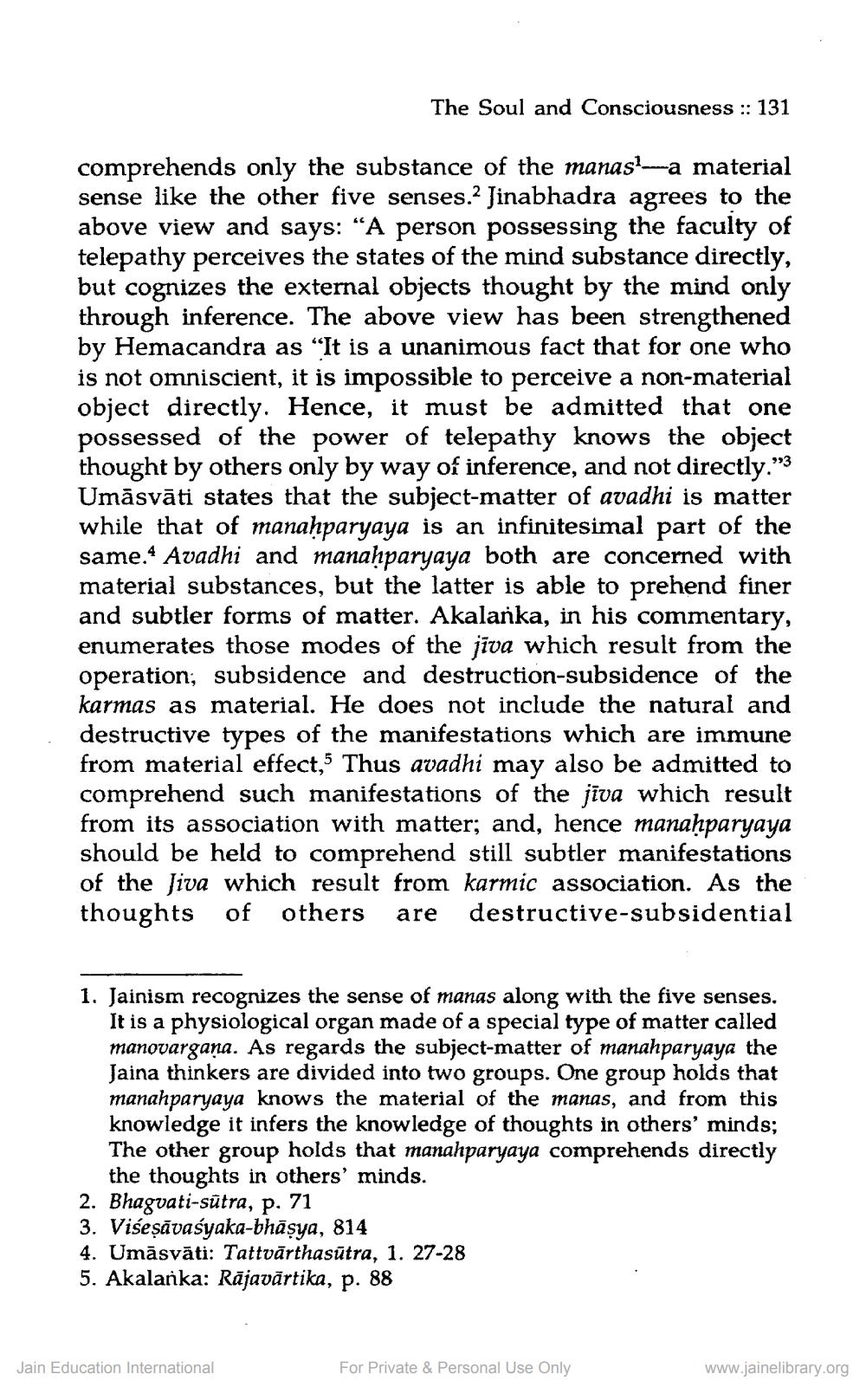________________
comprehends only the substance of the manas1-a material sense like the other five senses.2 Jinabhadra agrees to the above view and says: "A person possessing the faculty of telepathy perceives the states of the mind substance directly, but cognizes the external objects thought by the mind only through inference. The above view has been strengthened by Hemacandra as "It is a unanimous fact that for one who is not omniscient, it is impossible to perceive a non-material object directly. Hence, it must be admitted that one possessed of the power of telepathy knows the object thought by others only by way of inference, and not directly."3 Umāsvāti states that the subject-matter of avadhi is matter while that of manaḥparyaya is an infinitesimal part of the same. Avadhi and manaḥparyaya both are concerned with material substances, but the latter is able to prehend finer and subtler forms of matter. Akalanka, in his commentary, enumerates those modes of the jiva which result from the operation; subsidence and destruction-subsidence of the karmas as material. He does not include the natural and destructive types of the manifestations which are immune from material effect,5 Thus avadhi may also be admitted to comprehend such manifestations of the jiva which result from its association with matter; and, hence manaḥparyaya should be held to comprehend still subtler manifestations of the Jiva which result from karmic association. As the thoughts of others are destructive-subsidential
The Soul and Consciousness :: 131
1. Jainism recognizes the sense of manas along with the five senses. It is a physiological organ made of a special type of matter called manovargana. As regards the subject-matter of manahparyaya the Jaina thinkers are divided into two groups. One group holds that manahparyaya knows the material of the manas, and from this knowledge it infers the knowledge of thoughts in others' minds; The other group holds that manahparyaya comprehends directly the thoughts in others' minds.
2. Bhagvati-sutra, p. 71
3. Viseṣāvasyaka-bhāṣya, 814
4. Umāsvāti: Tattvārthasūtra, 1. 27-28
5. Akalanka: Rājavārtika, p. 88
Jain Education International
For Private & Personal Use Only
www.jainelibrary.org




